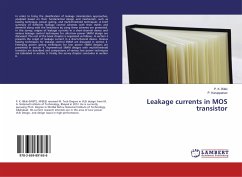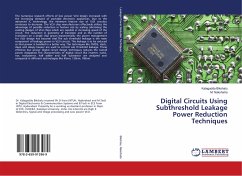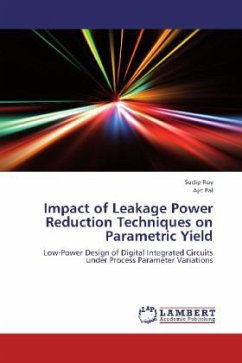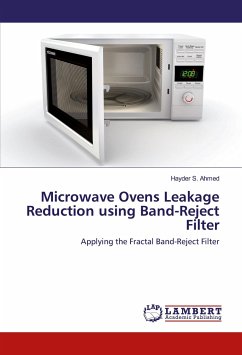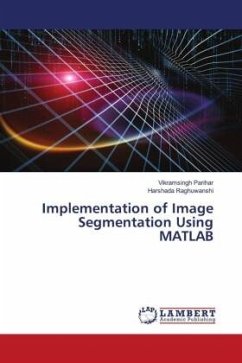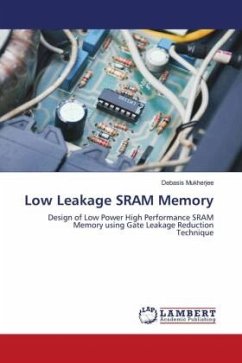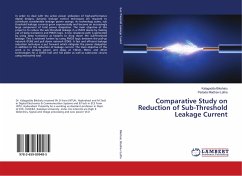
Comparative Study on Reduction of Sub-Threshold Leakage Current
Versandkostenfrei!
Versandfertig in 6-10 Tagen
33,99 €
inkl. MwSt.

PAYBACK Punkte
17 °P sammeln!
In order to deal with the active power utilization of high-performance digital designs, dynamic leakage control techniques are required to contribute considerable leakage power savings. As technology scales, sub threshold leakage currents grow exponentially and become an increasingly large component of total power dissipation. The main objective of this project is to reduce the sub-threshold leakage in a CMOS device by making use of sleep transistors and PMOS logic. A low resistance path is generated by using sleep transistors as keepers to drop down the sub-threshold leakage. This is achieved...
In order to deal with the active power utilization of high-performance digital designs, dynamic leakage control techniques are required to contribute considerable leakage power savings. As technology scales, sub threshold leakage currents grow exponentially and become an increasingly large component of total power dissipation. The main objective of this project is to reduce the sub-threshold leakage in a CMOS device by making use of sleep transistors and PMOS logic. A low resistance path is generated by using sleep transistors as keepers to drop down the sub-threshold leakage. This is achieved further by using PMOS logic between the pull-up network (PUN) and pull down network (PDN). A fast and efficient leakage reduction technique is put forward which mitigates the power dissipation in addition to the reduction of leakage current. The main objective of the work is to analyze power and delay at 130nm, 90nm, and 45nm technologies for a CMOS half and full adder as well as subtractorcircuits using microwind tool.



